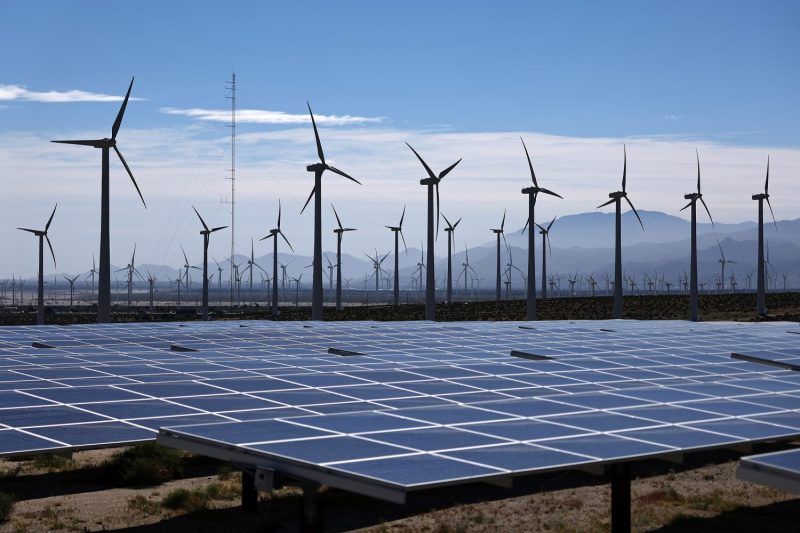With the global push towards sustainability and reducing greenhouse gas emissions, the shift to renewable energy sources has become increasingly urgent. The demand for renewable energy is expected to triple as electricity consumption surges in the coming years. This surge in demand is driven by several factors, including technological advancements, policy initiatives, and changing consumer preferences.
Technological advancements play a crucial role in the increased demand for renewable energy. Innovations in solar, wind, and hydropower technologies have significantly improved efficiency and lowered costs, making these sources of energy more competitive with traditional fossil fuels. As these technologies continue to mature, their adoption is expected to increase, driving up the overall demand for renewable energy.
Policy initiatives at the local, national, and international levels are also driving the shift towards renewable energy. Governments around the world are setting ambitious targets for renewable energy deployment and offering incentives to encourage investment in clean energy technologies. These policies create a favorable environment for renewable energy development and play a key role in stimulating demand for clean energy sources.
Changing consumer preferences are another important driver of the increasing demand for renewable energy. In recent years, there has been a growing awareness of the environmental impacts of fossil fuel consumption, leading many consumers to seek out cleaner and more sustainable alternatives. As a result, businesses and individuals are increasingly choosing to power their operations and homes with renewable energy sources, further boosting demand for clean electricity.
The surge in demand for renewable energy comes at a critical time, as the world faces the challenges of climate change and environmental degradation. By transitioning to renewable energy sources, society can reduce its carbon footprint, limit air and water pollution, and promote sustainable development. However, meeting this increased demand will require significant investments in renewable energy infrastructure, grid modernization, and energy storage technologies.
To ensure a smooth transition to a more sustainable energy system, it is essential for policymakers, businesses, and consumers to work together to drive the adoption of renewable energy technologies. Governments must continue to implement supportive policies and regulatory frameworks that incentivize the deployment of clean energy solutions. Similarly, businesses should invest in renewable energy projects and explore innovative ways to reduce their reliance on fossil fuels. Consumers can also play a crucial role by choosing clean energy options and advocating for a more sustainable energy future.
In conclusion, the demand for renewable energy is poised to triple in the coming years as electricity consumption surges worldwide. Technological advancements, policy initiatives, and changing consumer preferences are driving this trend towards clean energy sources. By embracing renewable energy and working together to accelerate its adoption, we can mitigate the impacts of climate change, reduce our dependence on fossil fuels, and build a more sustainable future for generations to come.
